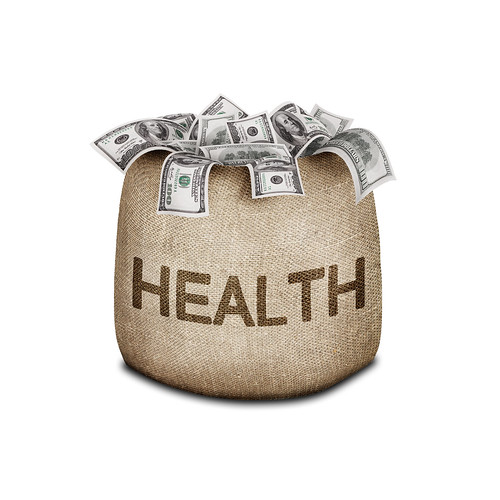We have all done it. A pain here, a headache there – you tap your symptoms into google and within seconds are convinced that you have a rare type of brain tumor. You race to your doctor’s office in blind panic only to be told… you have a headache.

It is easy to make a joke out of googling symptoms because at one time or another we have all misdiagnosed our foot falling asleep as Guillain–Barré syndrome, but common misuses of internet and social media-provided healthcare mask what could actually be an excellent service. The internet has made hypochondriacs out of us all, and worse still the advent of social media now allows us to spread our paranoia to others, but is it actually also the friend to people who use it reasonably and responsibly to query medical questions?
Here are the top 5 reasons why the internet and social media might not actually be the medical profession’s worst nightmare:
1. You can look up symptoms the sensible way
If you have ever looked up symptoms online then you may be comforted by the fact you aren’t alone. Some estimates now suggest that we consult the internet more than we consult our own doctors, and spend more time discussing ailments with friends via social media than we do with a professional nurse. Many people look up symptoms online because they do not want to hassle (or pay for) a doctor if the issue is minor.
The best way to check your symptoms online is to use a reputable source. Although there are corporate sites such as WebMD with a health of information from health professionals, many people are sometimes surprised that they can look up the symptoms on the websites of their national health service. For example in the UK, NHS Direct has an great online symptoms checker; in Australia the National Health Call Centre Network’s HealthInsite has a handy A-Z of health concerns and topics.
The same advice of looking at reputable sources goes for social media outlets too: almost all NHS Primary Healthcare Trusts have Twitter, where they can transmit urgent local healthcare information such as news of a Measles outbreak in a local area.
2. Taking the pressure off doctors
In part the growth of social media and internet-related resources for healthcare has been helpful. By reducing the burden on doctors who in the past wasted precious hours by dealing with common ailments that did not require serious medical attention, the internet has actually helped get those who need attention get it by reducing the amount of people who unnecessarily see a doctor. NHS campaigns on Facebook, Twitter and via the NHS Direct Website were useful in getting people with the flu to stay home last winter instead of clogging up the offices of doctors who cannot help them.
3. Widening of your treatment options
The internet has widened the choices for people whose ailments make them more like consumers than patients. An excellent example of this is eye care: once a person knows what kind of glasses or eye contact lenses they need, they can search via Facebook, Twitter or search engines and find them more cheaply and for similar quality online as compared to traditional opticians.
4. Social media support for the chronically ill or disabled
Social media can be a godsend to those who have ailments that influence their lifestyle choices. Support groups on Facebook and the like have popped up for everything from Celiac disease to Diabetes, allowing people to discuss diets and other things that they have personally found useful and also providing some degree of support to those with chronic illnesses and disabilities who often suffer alone when there are not any support groups in their area.
- 5. Sometimes the hypochondriacs are not actually wrong
It is a small proportion of cases, but sometimes when a person runs into the doctor’s office thinking they have a brain tumor, they may actually have a brain tumor. Although information on the internet can create an awful amount of hassle, it can also save the lives of people who search their symptoms and detect something is wrong early instead of putting it off until they think it is serious enough to warrant a doctor.
In the end, there will always be those who think Grey’s Anatomy and a search engine is the equivalent of a medical degree, but that is not a reason to think that all social media usage in healthcare is wasteful. Social healthcare has the ability to save lives, and perhaps in the end that is all that matters.
This guest post was written by Endre Rex-Kiss, a social media advocate, keen on connecting the dots between healthcare and social connectedness. He is also occasional guest blogger and freelance writer, this time representing Lenses Online, a New Zealand based online retailer of cheap contact lenses.
